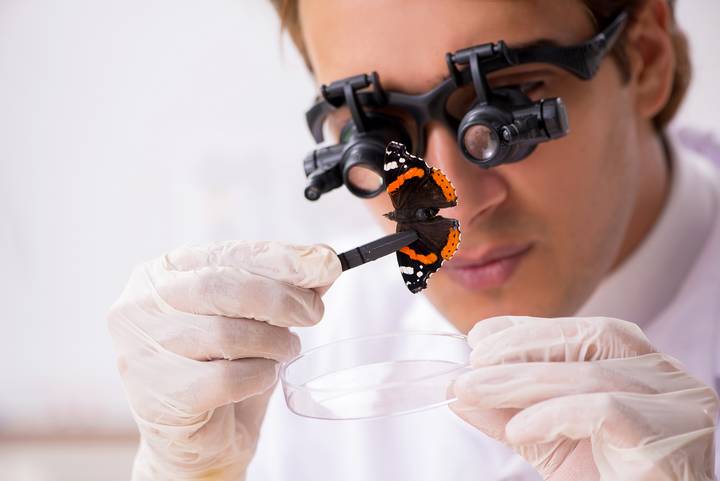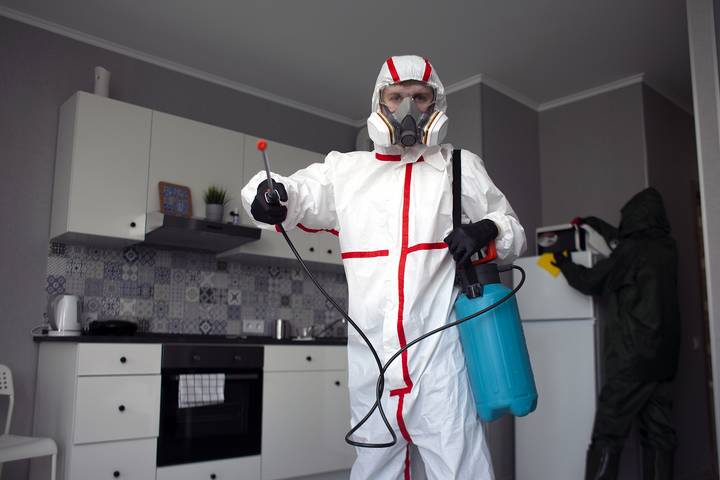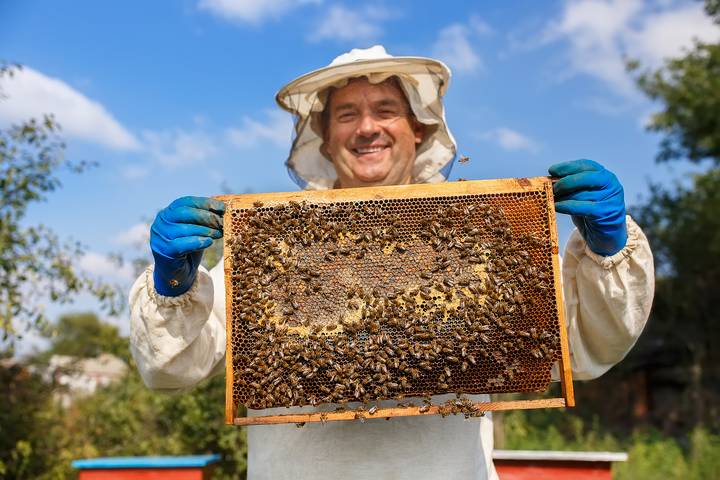
People who study bugs are called entomologists. They look at insects’ lives, habits, and behaviours. Entomologists might work in labs, out in the field, or even in classrooms, teaching others about insects. They research to understand how bugs affect our world, from pollination to spreading diseases.
Entomologists protect our environment and improve human health. By studying insects, they can manage pests that damage crops or carry diseases. This work is crucial for farming, public health, and conservation efforts. Insects also play vital roles in ecosystems, and entomologists help us understand these roles better.
The best entomologists should have strong analytical skills and a passion for discovery. They need patience and attention to detail to study tiny creatures closely. Communication skills are also essential since scientists often share their findings with other scientists or the public. It’s also helpful if they are comfortable working outdoors and in a lab setting.
Discover the most popular jobs for someone who studies bugs.
Job #1: Entomologist

Entomologists study insects, focusing on their biology, ecology, behaviour, taxonomy, and physiology. They research to understand insects’ roles in ecosystems, their interactions with humans, and their impacts on agriculture and biodiversity. Entomologists work in various settings, including laboratories, academic institutions, government agencies, and private industries.
This job suits someone who studies bugs because it involves in-depth exploration and understanding of insect life. Entomologists can improve agricultural practices, control pests, and protect public health. Their research addresses real-world problems and advances scientific understanding.
Job #2: Exterminator

An exterminator removes pests like insects, rodents, and other unwelcome critters from homes, businesses, and public areas. They use different methods, such as chemicals, traps, and preventative steps to manage infestations. Exterminators usually work for pest control companies, but some operate independently, dealing with residential and commercial clients.
This job suits someone who studies bugs because it requires a deep understanding of insect behaviour and biology. Knowing how pests live and act helps control and prevent infestations effectively. This role lets individuals use their knowledge practically, making it a rewarding career for bug enthusiasts.
Job #3: Agricultural Scientist
An agricultural scientist improves farming practices through research and experiments. They often focus on plant science, soil science, animal farming, or pest management. Unlike exterminators who eliminate pests, agricultural scientists create sustainable ways to manage pests and boost crop production. They work in labs, research centres, and fields to conduct experiments and analyze data for better farming outcomes.
Agricultural scientists develop eco-friendly pest control methods to improve food production while protecting the environment. The mix of research and fieldwork offers an engaging and impactful career for those passionate about insects and their ecological importance.
Job #4: Ecologist
Ecologists look at how living things interact with their surroundings. They study how ecosystems work, how species interact, and where they live. They do field research, gather data, and examine ecological processes to understand biodiversity, conservation, and environmental effects.
Ecologists often study insect populations, their interactions with plants and animals, and their contributions to ecosystem health. This role lets bug fans use their knowledge in broader ecological settings, making a real difference in conservation and environmental sustainability.
Job #5: Insect Taxonomist

Taxonomists classify and name insect species, study evolutionary relationships, and document biodiversity. Unlike ecologists, who study interactions within ecosystems, insect taxonomists focus on identifying and categorizing insects.
This job is perfect for someone who loves bugs because it involves a detailed study of insect diversity. Insect taxonomists discover new species, understand evolutionary histories, and contribute to the scientific knowledge of biodiversity.
Job #6: Biological Technician
A biological technician helps lab scientists by setting up experiments, collecting data, and keeping equipment in proper shape. They run tests, look at samples, and record what they find, helping research in different scientific areas. This job is excellent for people who study bugs because it involves working directly with biological samples, including insects.
Biological technicians play a crucial role in insect research, helping scientists learn about insect biology and ecology. The job provides practical experience in a lab setting, making it ideal for those passionate about bugs and scientific discoveries.
Job #7: Museum Curator
A museum curator cares for collections of artifacts and specimens, organizing exhibitions and educational programs. They get, manage, and preserve items, often focusing on specific areas like entomology.
This job is fun because it mixes research, education, and public interaction. Curators work with fascinating collections, including rare insect specimens, and share their knowledge with different audiences. The role allows for creativity in designing exhibits and preserves nature’s wonders.
Job #8: Beekeeper

A beekeeper takes care of honeybee colonies to produce honey, beeswax, and other bee products. They look after beehives to keep them healthy and productive. Beekeepers check hive conditions, handle pests and diseases, and gather honey and other items. They might also rent hives to farmers to help pollinate and improve crop yields.
Being a beekeeper is very rewarding for someone who loves insects. It offers hands-on bee experience and supports environmental sustainability. Beekeepers play a crucial role in food production by aiding pollination and maintaining biodiversity.
Job #9: Insect Conservationist
Insect conservationists focus on protecting and preserving insect species and their habitats. They work on projects to prevent insect population decline, especially among endangered species or those that play significant roles in ecosystems. Conservationists conduct field research, create plans, and collaborate with various stakeholders.
This role suits someone who studies bugs because it requires a deep understanding of insect biology, ecology, and behaviour. Insect conservationists use their knowledge to identify threats to insect populations like habitat loss, pollution, and climate change. They develop effective strategies to address these threats. The job involves fieldwork, allowing them to observe insects in their surroundings.
Being an insect conservationist is rewarding for someone who loves bugs because it combines passion with purpose. This job lets individuals impact the environment by protecting vital insect species and their ecosystems.









